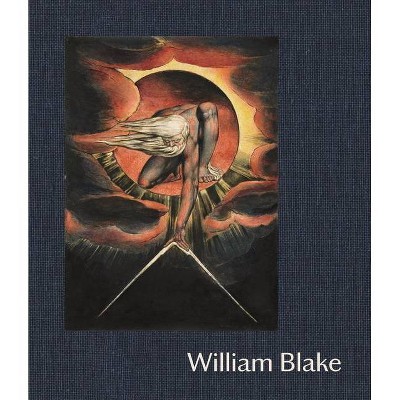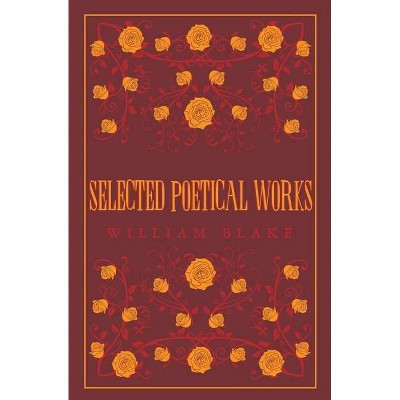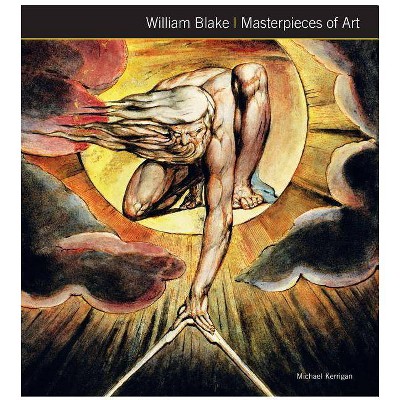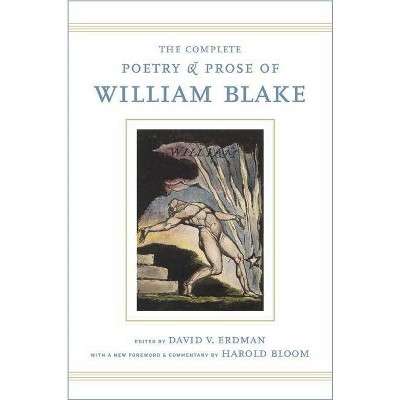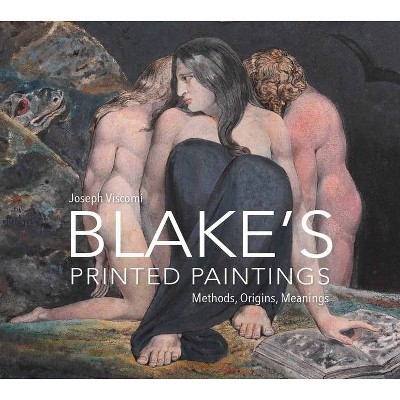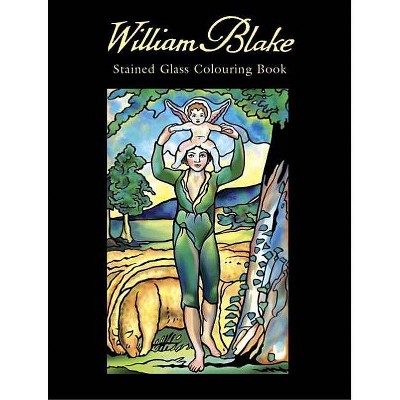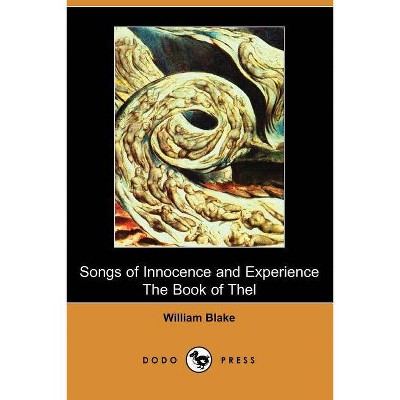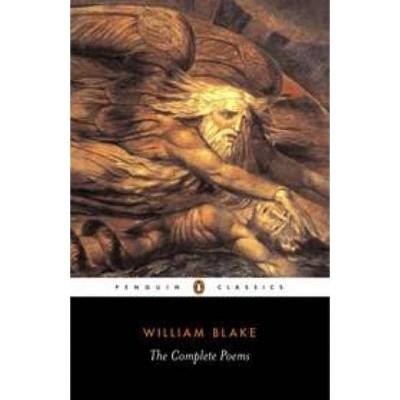William Blake as Natural Philosopher, 1788-1795 - by Joseph Fletcher (Hardcover)
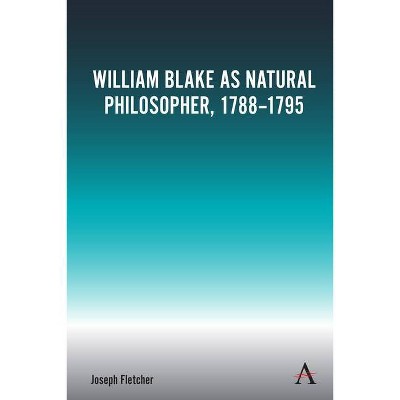
Similar Products
Products of same category from the store
AllProduct info
<p/><br></br><p><b> About the Book </b></p></br></br><p><em>William Blake as Natural Philosopher, 1788-1795 </em>takes seriously William Blake's wish to be read as a natural philosopher, particularly in his early illuminated works, and reveals the way that poetry and visual art were for Blake an imaginative way of philosophizing. </p><p/><br></br><p><b> Book Synopsis </b></p></br></br><p><em>William Blake as Natural Philosopher, 1788-1795 </em>takes seriously William Blake's wish to be read as a natural philosopher, particularly in his early works, and illuminates the way that poetry and visual art were for Blake an imaginative way of philosophizing. Blake's poetry and designs reveal a consistent preoccupation with eighteenth-century natural philosophical debates concerning the properties of the physical world, the nature of the soul, and God's relationship to the material universe. This book traces the history of these debates, and examines images and ideas in Blake's illuminated books that mark the development of the monist pantheism in his early works, which contend that every material thing is in its essence God, to the idealism of his later period, which casts the natural world as degenerate and illusory. The book argues that Blake's philosophical thought was not as monolithic as has been previously characterized, and that his deepening engagement with late eighteenth-century vitalist life sciences, including studies of the asexual propagation of the marine polyp, marks his metaphysical turn. </p> <p>In contrast to the vast body of scholarship that emphasizes Blake's early religious and political positions, <em>William Blake as Natural Philosopher</em> draws out the metaphysics underlying his commitments. In so doing, the book demonstrates that pantheism is important because it entails an ethics that respects the interconnected divinity of all material objects - not just humans - which in turn spurns hierarchical power structures. If everything is alive and essentially divine, Blake's early work implies, then everything is worthy of respect and capable of giving and receiving infinite delight. Therefore, one should imaginatively and joyfully immerse oneself in the community of other beings in which one is already enmeshed. Often in the works discussed in this book, Blake offers negative examples to suggest his moral philosophy; he dramatizes the disastrous individual and social consequences of humans behaving <em>as if</em> God were a transcendent, immaterial, nonhuman demiurge, and <em>as if</em> they were separate from and ontologically superior to the degraded material universe that they see as composed of inert, lifeless atoms. </p> <p><em>William Blake as Natural Philosopher</em> traces the evolution of eighteenth-century debates over the vitalist qualities of life and the nature of the soul both in the United Kingdom and on the continent, devoting significant attention to the natural philosophy of Newton, Locke, Berkeley, Leibniz, Buffon, La Mettrie, Hume, Joseph Priestley, Erasmus Darwin, and many others. </p><p/><br></br><p><b> Review Quotes </b></p></br></br><br><p>Joseph Fletcher's William Blake as Natural Philosopher is meticulous in its research, wide-ranging in its implications, and fascinating in its conclusions. While many are aware of the deeply entrenched philosophical tussle between Blake and Locke, Fletcher extends this argument to consider not only Enlightenment contemporaries but also classical thinkers who shaped his approaches to understanding the world and the soul. As such, this is an important addition to our appreciation of the early works of Blake and one that will be appreciated by scholars seeking insights into his art and writings in the late eighteenth century. -- Jason Whittaker, author of Divine Images: The Life and Work of William Blake, University of Lincoln</p><br><br><p>We know William Blake as a great Romantic poet, printmaker, and painter. Blake knew himself also as a philosopher and, as Fletcher persuasively demonstrates, was correct to do so. William Blake as Natural Philosopher, 1788-1795 reveals how Blake's early illuminated poetry imaginatively engaged with contemporary natural-philosophical debates concerning matter, the soul, and organic life. Fletcher traces these discourses through the long eighteenth century, and he is the first to argue that during this seven-year period, Blake both develops and withdraws from a pantheistic philosophy that views the material world as essentially divine. His innovative examination of both Blake's texts and designs provides the historical and theoretical grounds for new readings of Blake's early works and a reevaluation of the significance of pantheism to Blake's thought. -- Joseph Viscomi, James G. Kenan Distinguished Professor of English Literature, University of North Carolina at Chapel Hill</p><br><br><p>William Blake's complex poems and images make formidable demands. The first words that come to mind for most of his struggling reader/viewers may be "religion" or "imagination. But there is a strong critical tradition of approaching Blake's work from the less expected angle of science and philosophy. Writing In the tradition of such foundational critics as Jacob Bronowski and Donald Ault, Joe Fletcher leaves no question that he is their worthy successor. -- Morris Eaves, Professor of English and Richard L. Turner Professor of Humanities, Director, A. W. Mellon Graduate Program in the Digital Humanities, the School of Arts & Sciences, University of Rochester, Co-editor of William Blake Archive and Blake/An Illustrated Quarterly</p><br><p/><br></br><p><b> About the Author </b></p></br></br><p>Joseph Fletcher is Assistant Teaching Professor in the Department of English and Comparative Literature at the University of North Carolina at Chapel Hill, where he also serves as Managing Editor of the William Blake Archive.</p>
Price History
Price Archive shows prices from various stores, lets you see history and find the cheapest. There is no actual sale on the website. For all support, inquiry and suggestion messagescommunication@pricearchive.us
